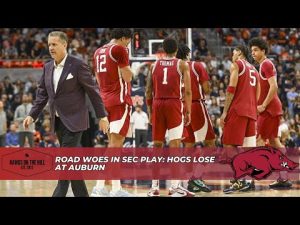
SEC Conference Realignment
By Daniel Flood host of Gator Truth
“College Football as we know it is dead or dying,” is a phrase that has been repeated by a number of fans in the college football world. One of the driving forces of this idea is the role that the expansion of several conferences has played in destroying conferences and long-lasting rivalries. Though this impact is true, this isn’t the first time this has happened and quite frankly, it probably won’t be the last.
In the early 1990’s the SEC expanded to include South Carolina from the ACC and Arkansas from the Southwest Conference. The latter was the catalyst in the eventual break-up of the Southwest Conference. In the mid-2000’s and early 2010’s the Big 10 and ACC raided the Big East and lead to that conference’s demise in football.
In college football, nothing is ever dead, it is evolving, and that evolution can be wonderful. The SEC is a shining example of this evolution. When South Carolina and Arkansas began playing football in the SEC in 1992 a revolution was born. The SEC split into two divisions and yes, many long-lasting rivalries in the conference were never the same. The divisional split allowed the SEC to have a conference championship game, something that many other conferences have duplicated, though the success has not been replicated.
When looking at the loss of some of the long-lasting SEC rivalries over time, such as Florida-Auburn, there is a sense of sorrow for what was lost. However, when you look at rivalries that began due to expansion, such as LSU-Arkansas or Florida-Tennessee, you can see some of the beautiful results of the evolution. Before expansion, Florida and Tennessee only played a handful of times a decade and was never considered a rivalry. However, following the SEC’s expansion, you had one of the greatest must see match ups of the 1990’s and early 2000’s filled with drama, top 5 match ups and eventual SEC and/or National Champions.
In 2012, the SEC expanded again by adding Missouri and Texas A&M. Perhaps due to Johnny Manziel’s Heisman first season starting at Texas A&M or Texas A&M’s SEC-like football fanaticism blending in with the culture, the expansion was immediately seen as a success. Missouri has won two division titles in their first three seasons playing football in the SEC. LSU and Texas A&M have rekindled an old rivalry over the last decade.
That brings us to our current point in history. The SEC once again has expanded by bringing in two great football schools with rabid fan bases, Oklahoma and Texas. There are obvious upsides such as the renewal of the Texas-Texas A&M rivalry, but the intriguing thing as we move into the next evolution of the SEC and college football, is what isn’t obvious.
In this new era, what will the scheduling look like beyond the 2024 and 2025 home and home schedules already set by the conference? What annual rivalries could we see become occasional? What match ups could become annual rivalries? Could Oklahoma or Texas suffer the fate that Miami did joining the ACC, a once proud program who has not won the conference?
When viewing the current state of college football, there is not a lot to like and expansion can be one of those things, especially if you focus on the past. The past is important in college football as tradition plays a role in it, unlike any other sport. However, when looking towards the future and the new traditions that could take hold, the new rivalries to be formed, college football is very much alive, it’s just evolving into something new that we hope is something better. In the end, it could be better than ever, it just is unfortunate that there are sacrifices to get there.





